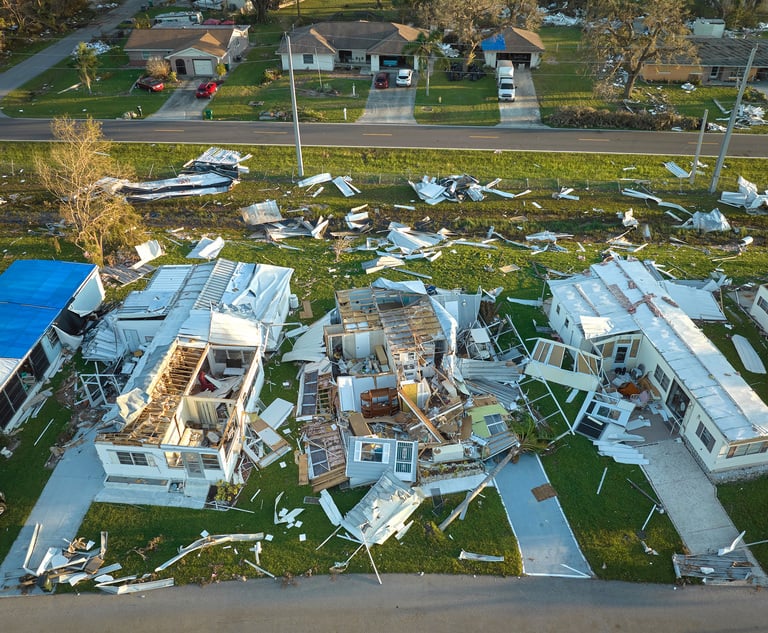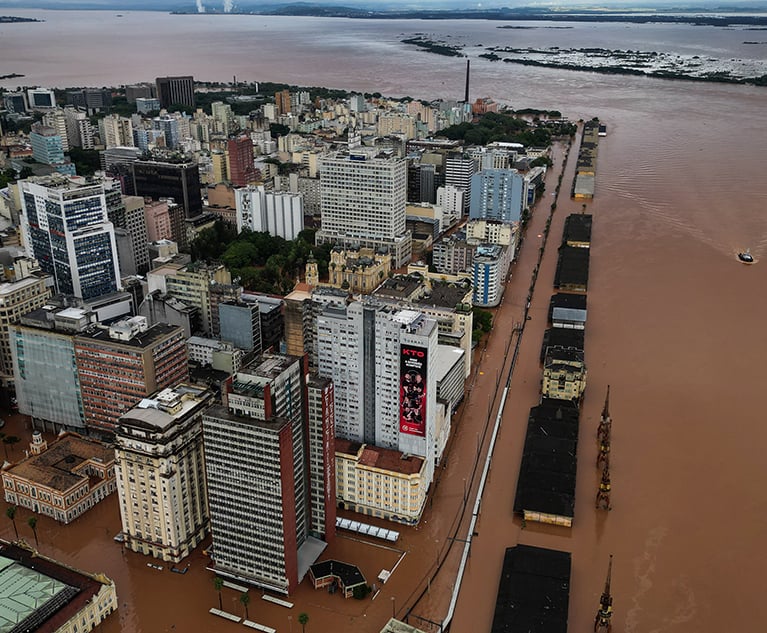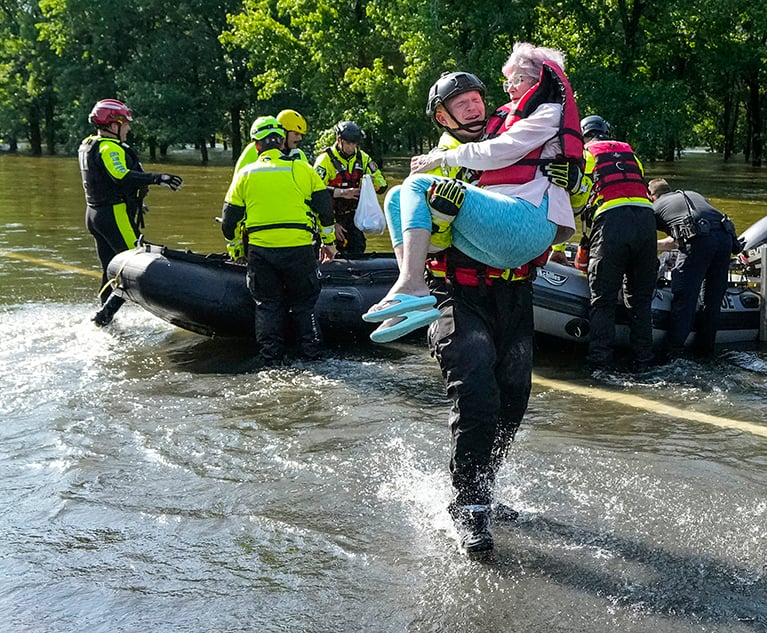 Since April 20, 2010, the Gulf Oil Spill has beenin the headlines everywhere, and for good reason. It is anunprecedented catastrophic event caused by man. It has taken a tollon the environment, the previously ravaged Gulf Coast, and thelivelihood of its people. Even those in the business of insuranceand claims may not understand the enormity of the undertakinginvolved in serving as claim manager for this disaster. Thusemerges the claim manager, the man in charge of managing the claimsfor BP, Darryl Willis.
Since April 20, 2010, the Gulf Oil Spill has beenin the headlines everywhere, and for good reason. It is anunprecedented catastrophic event caused by man. It has taken a tollon the environment, the previously ravaged Gulf Coast, and thelivelihood of its people. Even those in the business of insuranceand claims may not understand the enormity of the undertakinginvolved in serving as claim manager for this disaster. Thusemerges the claim manager, the man in charge of managing the claimsfor BP, Darryl Willis.
I had the privilege of interviewing Darryl Willis, who openlydiscussed his role as claim manager. He conveys a sense of genuineconcern about the situation and takes a hands-on approach to hisposition, which carries a great amount of responsibility andaccountability. It will be interesting to see how the claim processcontinues to develop as time goes on and decisions are made thatwill impact how we handle future catastrophes.
|There is no doubt that the oil spill is far from beingconcluded, and one from which we will all want to monitor andlearn. That will likely take many years. But for now, here is whatDarryl Willis had to say during an interview conducted on June 25,2010.
|MEDINA: How were you chosen to be in charge ofclaims?
|WILLIS: I wanted to come to New Orleans to workin some capacity for the spill. I am from New Orleans, and I wasraised there. I lived through and saw the destruction from Katrina,so I wanted to help. When I got there I was doing back office typesof things. I never expected to be cast to the forefront. I am herenow in this position and I want to make certain that we make itright. In a sense, I volunteered for this job.
|How “hands on” are you in the processes of claimhandling?
|I am out there. I walked the beach in Destin last night. I sawtar balls washed up on the shore. I will be out there again todaywalking the beaches. I want to see what is happening. I have madeit my focus to make sure that people know how to file a claim. Iremember during Katrina how difficult it was for people to know howto file a claim or where to go for help, so I have made this apriority. I have made the process known to people by making surethat we have enough offices to be available for people. We arecontinuing to open new offices and staff those offices as the needarises. I want to make sure the system is running smoothly andworking for the people.
||What is your biggest challenge?
|For today? Each day presents new challenges. My most immediatechallenge is the process of getting the claims in and paid. We needto make it work as efficiently and as quickly as possible.
|There has been some talk among the adjusting communitythat BP has not hired enough adjusters, or experienced adjusters,or local adjusters. It has been said that some adjusters want to goto work on the spill but they are not being utilized. Do you thinkthat you have enough people to handle the claims?
|When we started on May 1st, we started with seven adjusters. Wenow have 1,700 adjusters, 36 offices, and 170 telephone operators.We have hired Worley Catastrophe to handle the claims for us, andthey have done an amazing job. Of the adjusters now working, Iwould say that 80 percent of them are local, being from anywherebetween Texas and Florida. They are quick to respond, and they arealways in touch with me, offering me feedback and listening to mydirection. When we request a new office, it is set up in threedays. They are being quick to respond and sympathize with thepeople presenting claims. [Worley] has shown me proof that they cansupply up to 5,000 adjusters, and I am confident that is the case.
case.
This is the first time in history that a U.S. Presidenthas become involved in a catastrophic event, to the extent thatPresident Obama actually made a statement ordering BP to make useof a third-party administrator to get claims paid. Do you thinkthat BP is doing everything that it can do to utilize a TPA ingetting the job done?
|Like I said, we are confident in the Worley Group and they aredoing everything that we ask them to do. We are going to continueto make changes as we see the need in order to do what it takes tomake this thing right. The government is handling their ownadministration of the process. We make reports daily to the CoastGuard about how many checks have been written and how many claimshave been filed.
||What are your thoughts on Ken Feinberg, the manappointed by President Obama to oversee to oversee the payment ofclaims? How will you work together?
|I met with Mr. Feinberg for the first time [June 24, 2010] andwe had a very lengthy, all-day meeting about how we were doing andwhat we needed to do to improve as we discussed a future plan forhandling claims.
|He stated that he usually starts from scratch and has notpreviously become involved in a process that was already in place.While he feels like we have been very productive, he stated that weneeded to focus on paying business claims. So we talked about howto make the business claims more transparent and efficient. Hefocused on a plan for the business claims since about 90 percent ofthe claims handled thus far are for individuals. While that may becorrect, there is a reason for those numbers. When you are talkingabout businesses and financial reporting, you are going to belooking at quarters. The quarter that we would be looking at is thesecond quarter: April, May, and June. Businesses are just nowgetting those numbers in. We have paid out $90 million in claims sofar and we will continue to pay individuals and businesses until weget everyone's claim handled. I will continue to work with Mr.Feinberg to improve the processes as long as necessary.
|How long do you think it will take to pay all of theclaims? How long do you think that you will have offices open andstaffed with adjusters and claim handlers?
|I cannot tell you a time period. I can tell you that wewill be here as long as it takes. We at BP realize that this is anunprecedented spill; we are trying to get it right; and we havedone some things wrong. We need to get it right and fix theproblem; we need to be held accountable. We need to make it right,and everyone that I know is determined to do that.
|NEXT:
|ATTORNEY LELA HOLLABAUGH DISCUSSES THE LONG-TERMLITIGATION ASPECTS BP FACES
|| A Long Road Ahead forBP
A Long Road Ahead forBP
While Darryl Willis has necessarily focused on present-dayprocessing engineering issues such as setting up claim offices anddisbursing payments to those directly affected by the oil spill,it's clear that there are going to be many long-term litigationaspects related to this catastrophe.
|For some perspective about how these issues will emerge,Claims' Editor in Chief Eric Gilkey spoke with LelaHollabaugh, insurance litigation expert and partner at WallerLansden Dortch & Davis, to find out how well BP is payingclaims, what the company can expect in terms of legal costs, andwhat—if anything—we can learn from other mass tort cases such asValdez.
|How do you think BP is doing so far in terms of payingclaims?
|BP instituted a claim-payment process shortly after the spillbegan, as it was required to do. However, the volume of claims anddiversity of claims are unprecedented, and I suspect BP has done abetter job than most companies would or could have done undersimilar circumstances. BP's web site provides detailed informationabout how to make a claim, and it has a claim center in the regionto provide timely responses.
|Reviewing and processing claims of this kind takes time. Whilemany claims will be for legitimate losses, many people who haveillegitimate claims will attempt to get money from BP. Thosefraudulent claims must be weeded out so that those people withlegitimate claims can be paid.
||What do you think will be some of the major claim issuesrelated to the spill?
|One major issue related to claim payment is whether or not themore remote claims will be paid. For example, BP must determine ifclaims related to lost rental income for resort property will bepaid. Ken Feinberg, who will administer the $20 billion claim fund,is making statements that indicate that some of these claims willbe denied. Obviously, the specific circumstances of each claim willdetermine payment.
|Litigation related to Hurricane Katrina is still playingout nearly five years later. Can we expect the same kind oftimeframe for this disaster? What do you think will be the ultimatecost of legal fees for companies involved in thespill?
|Litigation will continue well beyond five years after this spillends. The litigation arising from the Exxon Valdez oil spill lasted20 years. The legal activities associated with the Gulf oil spillwill likely extend even longer than that. This spill involves fivestates and a much more populated area than the Alaskan coastlinethat was affected by the Exxon Valdez spill.
|All of the companies involved in this spill will likely spend inexcess of $8 billion in legal fees defending claims unless an earlyglobal resolution of all claims can be reached. The companies willdefend direct claims against them by individuals, businesses, andthe various state and federal governments involved. These claimscould include those by citizens of other countries and theirgovernments if the oil spreads beyond the United States. Inaddition, the companies are already involved in litigation with oneanother and with their insurance companies.
||What, if any, comparisons can be drawn between the BPspill and other mass tort cases such as the ExxonValdez?
|This spill is larger and impacts more people and businesses thanValdez. The claims by fisherman will be similar, but more types offishermen will be making claims in the current situation. Thegovernment's pursuit of civil and criminal penalties will likelyfollow a similar course as Valdez. I also expect categories ofclaims to be established and efforts made to resolve certaincategories of claims similar to what we see in other mass tortcases.
|You're providing legal advice to BP regarding itshandling of the spill. Can you summarize yourapproach?
|Any company in a position similar to BP should be focused on twothings: Resolving legitimate claims quickly and defending thequestionable claims while keeping the costs to defend these claimsunder control. Most companies in this position will work diligentlyto develop a legal team to efficiently and effectively manage thelitigation toward a favorable resolution. Different legal teams mayhandle various areas of litigation but will work closely togetherto streamline work and present a consistent corporate message.
Want to continue reading?
Become a Free PropertyCasualty360 Digital Reader
Your access to unlimited PropertyCasualty360 content isn’t changing.
Once you are an ALM digital member, you’ll receive:
- All PropertyCasualty360.com news coverage, best practices, and in-depth analysis.
- Educational webcasts, resources from industry leaders, and informative newsletters.
- Other award-winning websites including BenefitsPRO.com and ThinkAdvisor.com.
Already have an account? Sign In
© 2024 ALM Global, LLC, All Rights Reserved. Request academic re-use from www.copyright.com. All other uses, submit a request to [email protected]. For more information visit Asset & Logo Licensing.








